Hello, friends!
I bet you’ve already seen the message containing our second community prompt, and we can’t wait to hear from you! If you haven’t done so yet, give Matt's marvelous prompt-while-driving video a look here, then get rolling on your next piece.
We want to hear about your favorite summertime ritual, summertime tradition, summertime memories, and the music (hit us with your best playlist!) that summons those things up or serves as a good soundtrack for you. You know how prompts go - don’t overthink it, don’t plan it, just trust your writing and let it lead.
This week & next here on Going Solo, you’ll read a two-part piece about all the places this prompt took me. I set out thinking about the fact that when I went on the road full-time, most of my summertime traditions fell away, including the twice-yearly ritual of packing and unpacking the absurd collection of sundresses that I’ve accrued over the years. Living in the north for as long as I did, it became a way of marking the seasons: I’d pack them away with sachet each fall with the first frost, and unpack them again with the first thaw come spring. And then, as essays are wont to do, this one went careening off from there.
Make sure to check out all the Caravan instructors’ responses to the prompt: kicked us off yesterday with a wonderful piece about the meditative nature of mowing over on , is on deck over at , and will round us out on this weekend. If we give you a prompt, we’ll write you a post - believe me when I say we practice what we preach.
Can’t wait to read (and hear) where the second Caravan Community prompt takes you! Write it, post it, tag us, and we’ll see you soon! xoM
Listen to a reading of Part 1 of Snapshots, Soundtrack here
The Soundtrack
For those who don’t have Spotify, all tracks are listed at the end of the post.
The Snapshots
2025
The Forest
Early summer, early morning, I was sitting on a fallen log in a thicket of pines outside the Scamp getting scolded by a bossy bird. I don't know birds; I took out my phone to take a photo of this one to send to a friend who does know birds to ask him What's this bird, what's its name, and
I thought of a walk I took a few years back with someone in the south. It was summer, the air was languid and thick, the banks of the river were wildly green. I pointed at a tree and said, What's that tree, what's its name, and this man, who thought himself quite wise, explained to me that a wise man would not care about the name of the tree, would not need to know, would be content to wonder, and I laughed and said Yes, of course, a wise man would, but a writer would wonder at its name for the sheer delight of needlessly knowing, for the love of words, for something to discover, for the wonder of small good things, and the wise man was insulted that I did not find his wisdom wise so he put his nose in the air and stalked off while I peered into every buttercup and bent to smell the living green of every tiny leaf for no reason other than to know the world a little more -
after all, how long do we get to live in this world of blossoming blossoms and fat dizzy bees, flying all a-wobble, drunk on pollen and dew?
In any case the other day I took a picture of the bossy bird that was telling me a thing or two and as I did, my phone announced that it had assembled my memories for me, collected a handful of photos from three years ago that day. Sometimes it offers these unbidden reminders by theme, and I am treated to a collection of photos called things like A Ten-Year Retrospective of Hiking in Places with Exes or Exes Looking Faintly Hip in Urban Locales or A Series of Exes Blocking Perfectly Good Sunsets - my phone and I continue to live in an uncomfortable detente - anyway - the phone said more or less Here is a day in the life you used to lead and showed me a well-assembled collection of snapshots -
a bright and airy room -
a rack of bright summer dresses -
my beloved cat Alex, my ride-or-die companion Zeke -
paintings and bookshelves, emerald-green curtains, a pink velvet chair, bracelets and perfume, objects of beauty and art -
that life. What it was, how it looked.
What I lost, what I left behind.
2022
The Sundresses
A cheap hanging rack, jammed from end to end with cheap dresses - thrift stores, garage sales - dresses someone else bought on a whim and discarded for whatever their reasons - too old, too threadbare, too small, too short, garish, too bright, too young, poorly made, barely worn, crooked hem, sticky zipper, loose thread, torn seam - the sundresses found their way into my hands, a dollar or three or five, the clerk would pull them off the hanger, I'd pay in change, stuff them in my purse, the fabric so thin and so little of it I'd sometimes forget them until I got home and discovered them all over again, delighted by the shock of color as I always am, squawking and muttering, happy as a crow with its scrap of tinfoil, safety pin, missing earring, paperclip, flung diamond ring -
I’d hang the new old dress on the rack - jewel-toned, bright reds and oranges, magenta, sunburst yellow, cantaloupe, lime green. In summertime, back then, you could probably spot me a mile away, drifting barefoot by this lake or down that path, sitting with my funny feet tucked up under me on a too-high chair so they wouldn't dangle like a little girl's while I read a book at a wobbly table on the sidewalk of some city cafe - a splash of coral in the wavering heat, a drop of blue topaz glowing in the distance of a squint-bright day.
The Airy Rooms
The quietude, the solitude. The stillness. The spaciousness, the peace.
The morning light breaking across my face, the stirring awake from summertime dreams, the cool white sheets.
The drift of days that feel, in memory, lazy and uncluttered as the rooms, one room empty but for a yoga mat, a meditation cushion, a pink velvet chair.
There, in the forest, leaves reaching out to brush against my face when I walked, tapping at the window of the Scamp to wake me in the morning, drawing me back into the trees toward the skitter in the underbrush, under the overstory's tangled branches and their chorus of bossy birds, I sat on the fallen log and looked at those photos, remembered those summers, that life. I can hardly imagine it: the luxury of empty space.
To think that I once had spare rooms.
The Dishes for Guests
The dining room - the sturdy table, its sturdy chairs. The kitchen, the heavy pots and pans, the mixing bowls, the plastic bins, appliances, tools.
Citrus zester, garlic press. Carving knife, bread knife, spare bread knife, macerator, meat hammer, sifter, sieve. Peeler. Smaller peeler. Peeler for peeling things so small they are not even things. Mandoline. The day-to-day dishes. The dishes for guests.
The summer night I set the table for a guest. The china - I do treasure the china, now neatly boxed and so well-packed it wouldn't break if you threw it hard at the wall - which of course you wouldn't - though you might - depending - the china was a gift from my mother, who'd smashed my wedding dishes in the street some years before - she'd had a glass or two of wine - I never knew where they'd gone - the morning after a party, I discovered them missing, thought it very odd someone had stolen my dishes, of all things - wondered how they'd smuggled the dishes out unnoticed, even as drunk as I'm sure we all were. Fifteen years later, Christmas morning at my mother's, there was a massive box under the tree containing a full set of rare Spode.
My mother, looking somehow both very pleased with herself and somewhat chagrined, at last confessed.
That summer night, I set the table for a simple supper - soup, bread, bitter greens with salty parmesan and tangy vinaigrette - on beautiful china I treasure in part for its beauty but more so because it was a gift from my mother, who is so ferocious a being she not only took it upon herself to smash a set of china in a city street but kept the secret till she was good and ready to say. I lay the placemats and napkins, the chargers, the plates, listening to the sound of a city summer on the streets outside. I glanced up and caught sight of myself in the mirror above the buffet, doing what I always seemed to be doing, what I'd been doing so long it had become habit, felt natural, ordinary, as if it was something I still wanted to do: setting a table and feeding a man.
The man arrived; we chatted, I plated and brought the food to the table, we sat down. He paused, picked up his dinner plate, peered closely at the pattern - blood-red filigreed with gold - and ran his finger lightly along the plate's gold rim.
"This is Spode," he breathed.
I nodded, served salad, set out butter and bread. I thought about telling the story of my mother smashing china in the street, but I didn't know if he was funny yet, so I refrained.
"It's a very important pattern," he murmured, lost in thought.
I tore off a chunk of bread, buttered it thickly, shoved it in my mouth, and said, "Ok," thinking that I had never heard anything more insane, or insane in quite that way, relishing the bright yellow burst of salty butter in my mouth and wondering why anyone would care.
A week, a month, a few months later, I sat in an uncomfortable modern chair in this man's living room, unable to quite pay attention to what he was saying because I so desperately wanted to take off my shoes. I wondered why I'd worn a dress. I didn't like the dress. I didn't like the shoes. I wanted to be wearing anything else. I wanted to be sitting anywhere but in a chair not made to hold the human form. I wanted not to be sitting in a chair. I wanted not to be sitting indoors. I wanted not to be sitting at all. I was overwhelmed - I sometimes am - by the suffocating, oppressive insideness of it all, the curated lovely insideness, the cleanliness and order, the beauty and the beautiful things, everything correct in all the ways things can be correct. I was overwhelmed by a nearly uncontrollable physical impulse to flee.
It always starts with needing to take off my shoes. Then I start glancing around for the door. Then I can't listen. This is the story of my fucking life. I'm sitting there in my person suit trying to person and then here it comes, the building wave, it looms, it roars, it crashes down,
let me out
and in the distance I heard the drone of this man telling me about the beautiful insideness and all the inside things, the walls and everything on them, the elegant way in which the room was arranged, the fabrics and contrasts of texture and color, I nodded and made listening noises, I turned my head slightly so as not to be obvious about clocking the distance to the front and back doors,
and I heard him say it again, the word that caught me the first time we had dinner - important -
he was saying, Something something is very important, I snapped into focus, mentally scrambled - something was important! I tried to listen, watched him gesture, maybe I could catch his meaning from context,
This chair, he was saying, and this credenza, they're very important -
and it startled me - it always does - what gives each of us a sense of purpose, of value, what signals to us that something has meaning, how vast a divide there really is between what matters to any one of us and anyone else, and I understood, once again and always, that I will never understand, try though I might, why his list of things that hold meaning, have value, have purpose and import enough to be truly important, would include furniture and plates
and I wish I were a better person than the one I am, the one who was struck with a mad impulse to dismantle all his furniture, leg by arm, limb from well-made limb, gather it into my arms, walk outside, build a good fire, take off my stupid shoes and dig my weird hobbity toes in the dirt
and of course I would never do it, and of course I didn't say it, I didn't lean toward him and say, gently or bluntly or in any way at all,
Furniture is not important.
Dishes are not important. Not in themselves. They are tools. They serve a purpose, they're functional things. That's everything; that's all. No matter how beautiful, no matter how fine, the thing itself cannot hold meaning; meaning is imparted by the function of the thing. Purpose, function, use, these are what lead us to meaning. That which feeds us is important, that which brings us comfort and keeps us warm. Those who feed us, those who bring comfort, those who help us build and tend our fires, whose care keeps us warm.
But I didn't say it, because it wasn't true.
It wasn't true to him. Beauty is important in itself. That which brings us pleasure, delight, joy, is important in itself. This man's face was filled with pleasure as he looked around what I'd have called the museum of his home. He found joy in the exacting confines - carefully measured, precisely cut - of his shadowbox life. His hand worried the smooth wood of the arm of a chair the way another man might absently reach out and rub another lover's arm; the gesture spoke to his fondness for a chair I thought would serve nicely as kindling. I’d watched his eyes light up with wonder when he looked at the edge of a plate.
Who am I to question what holds value, has meaning, for anyone else? Who am I to decide what matters, what counts?
Who am I to say?





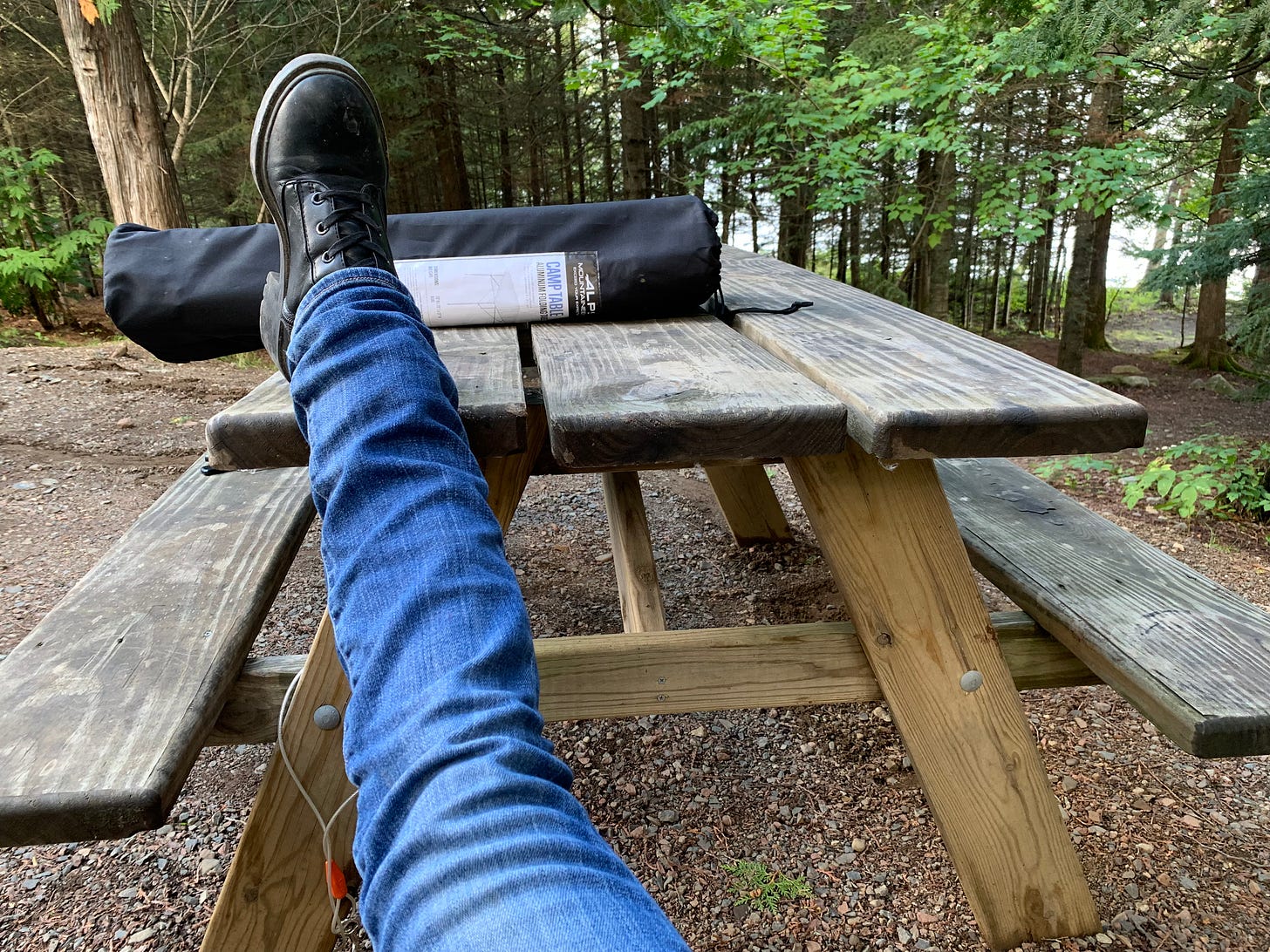
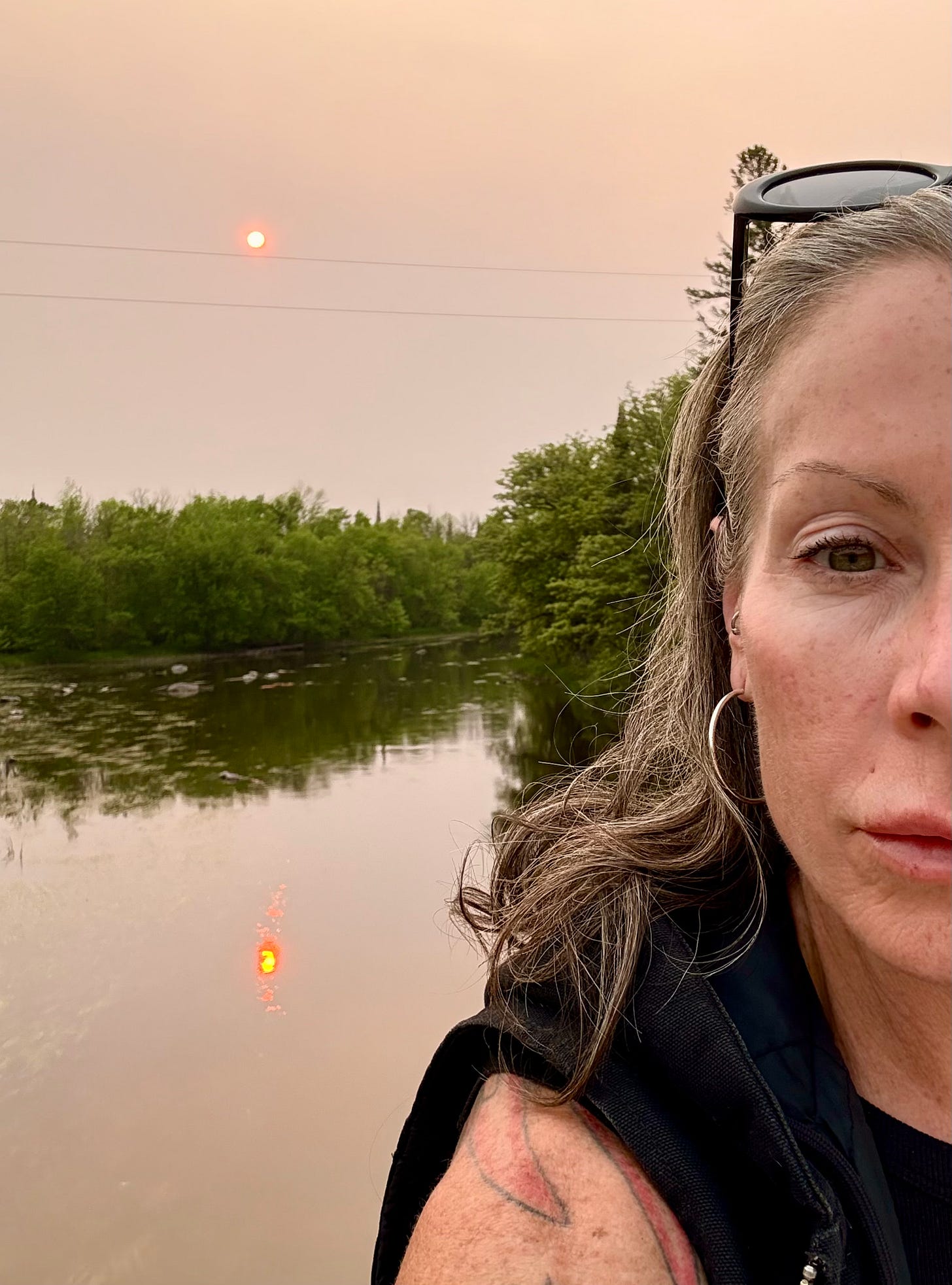
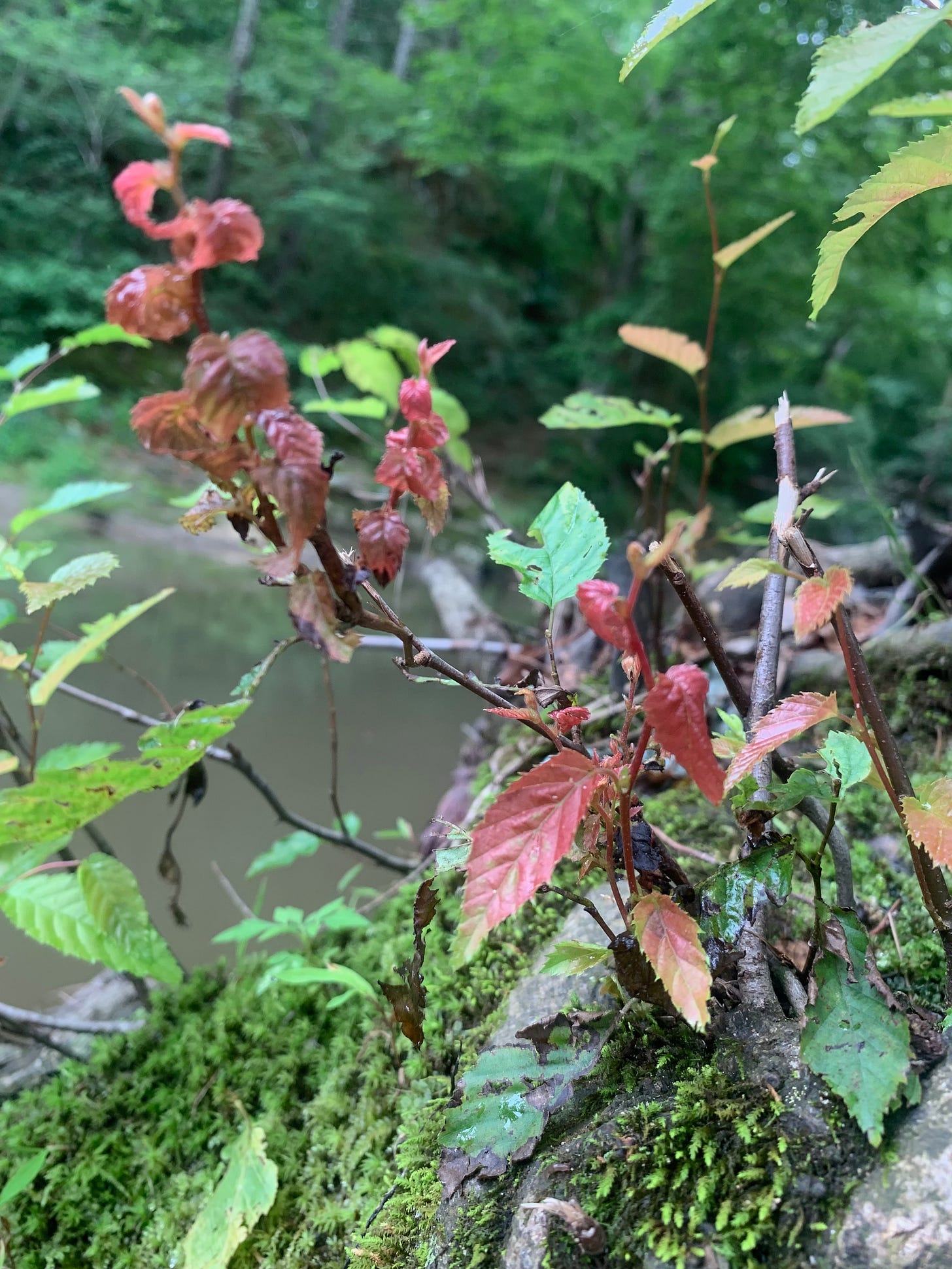
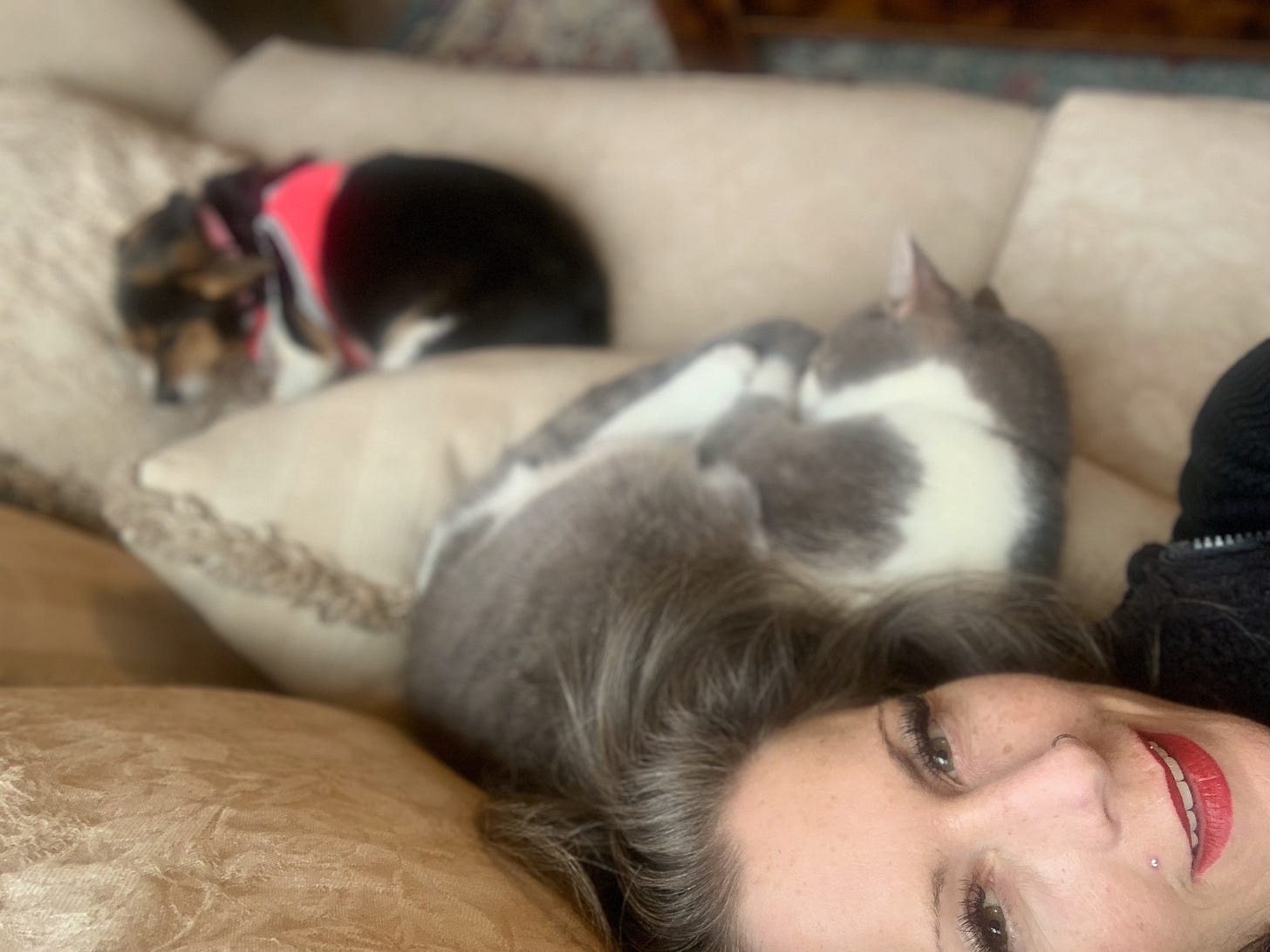
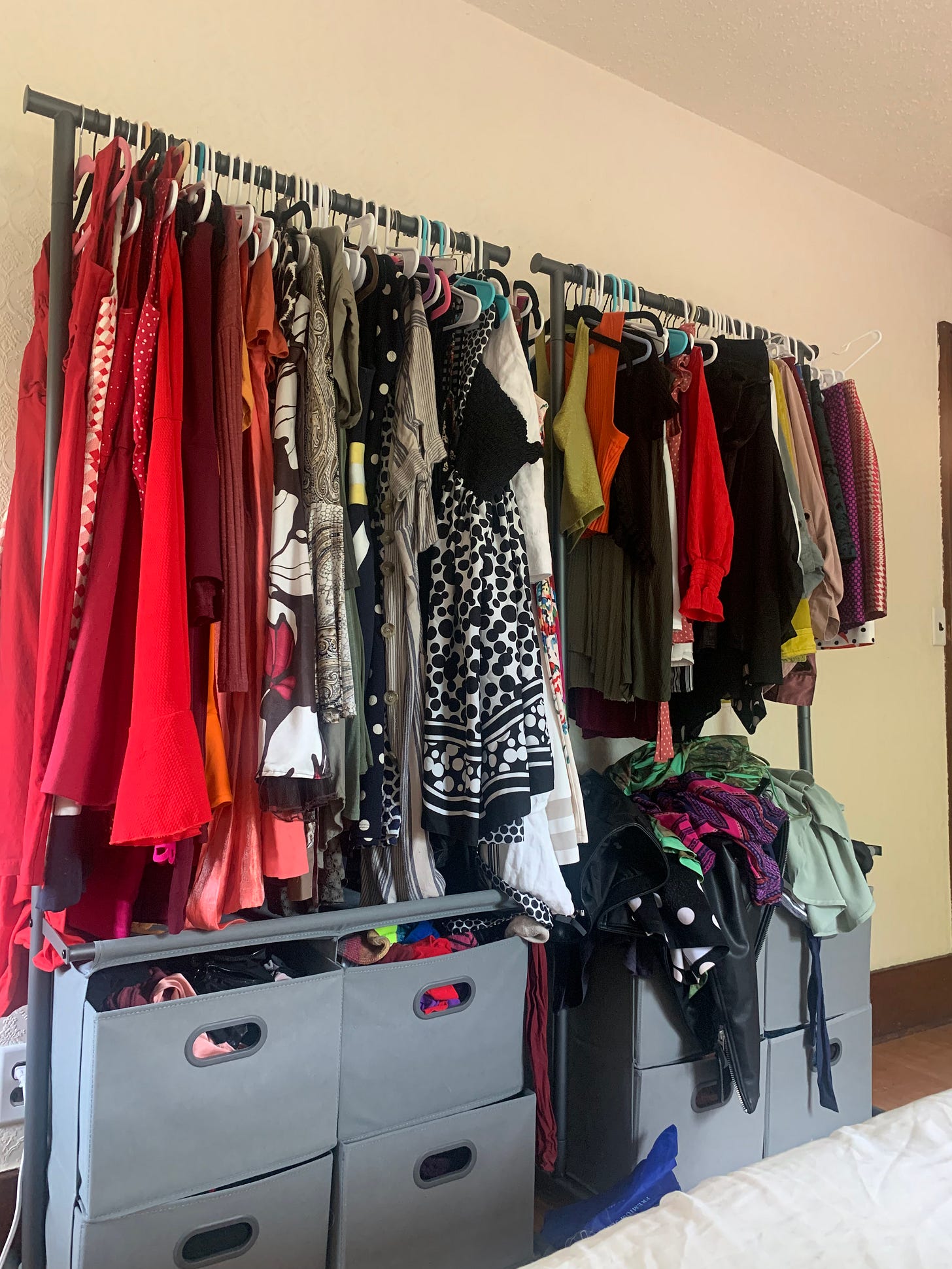
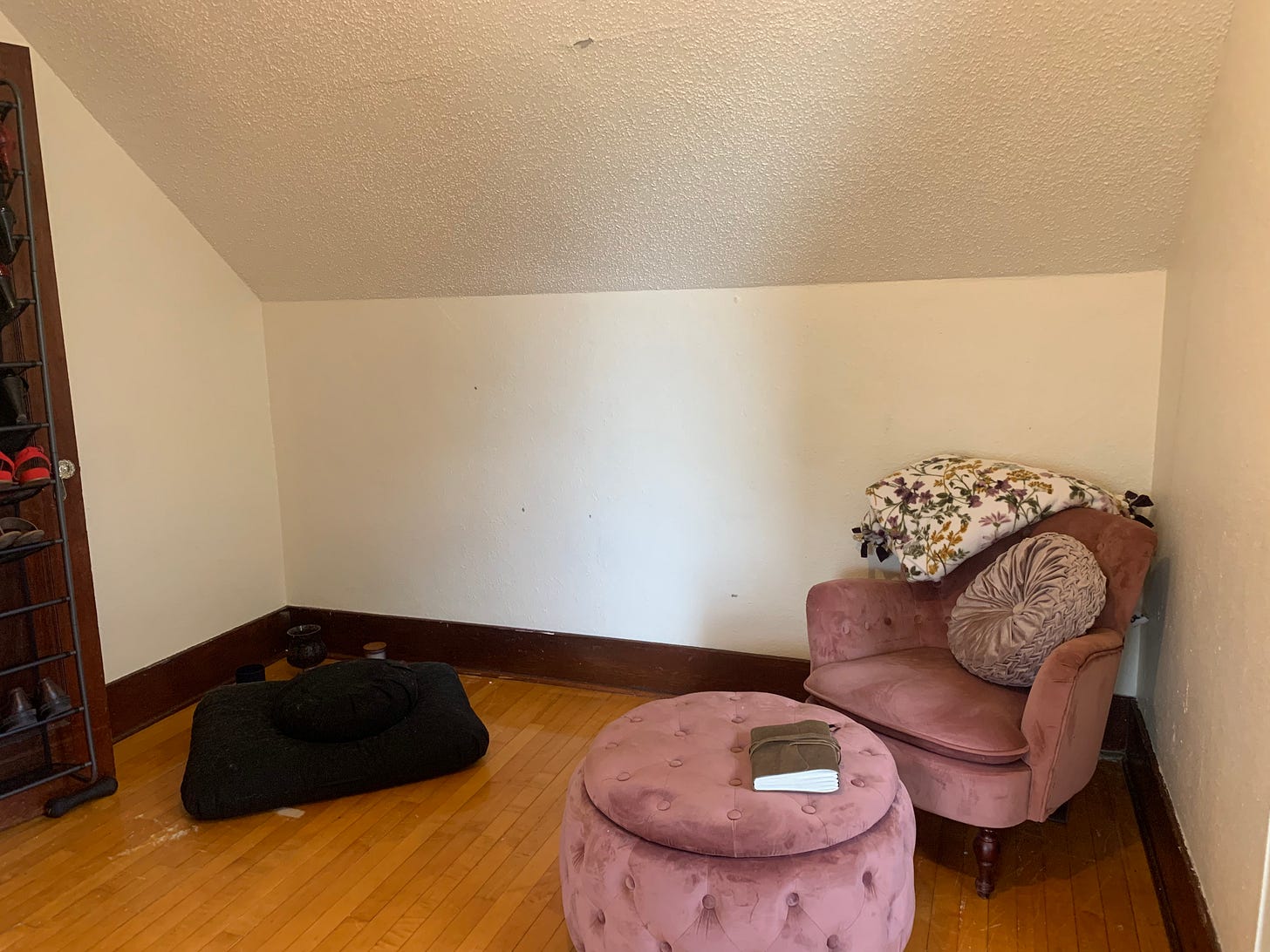

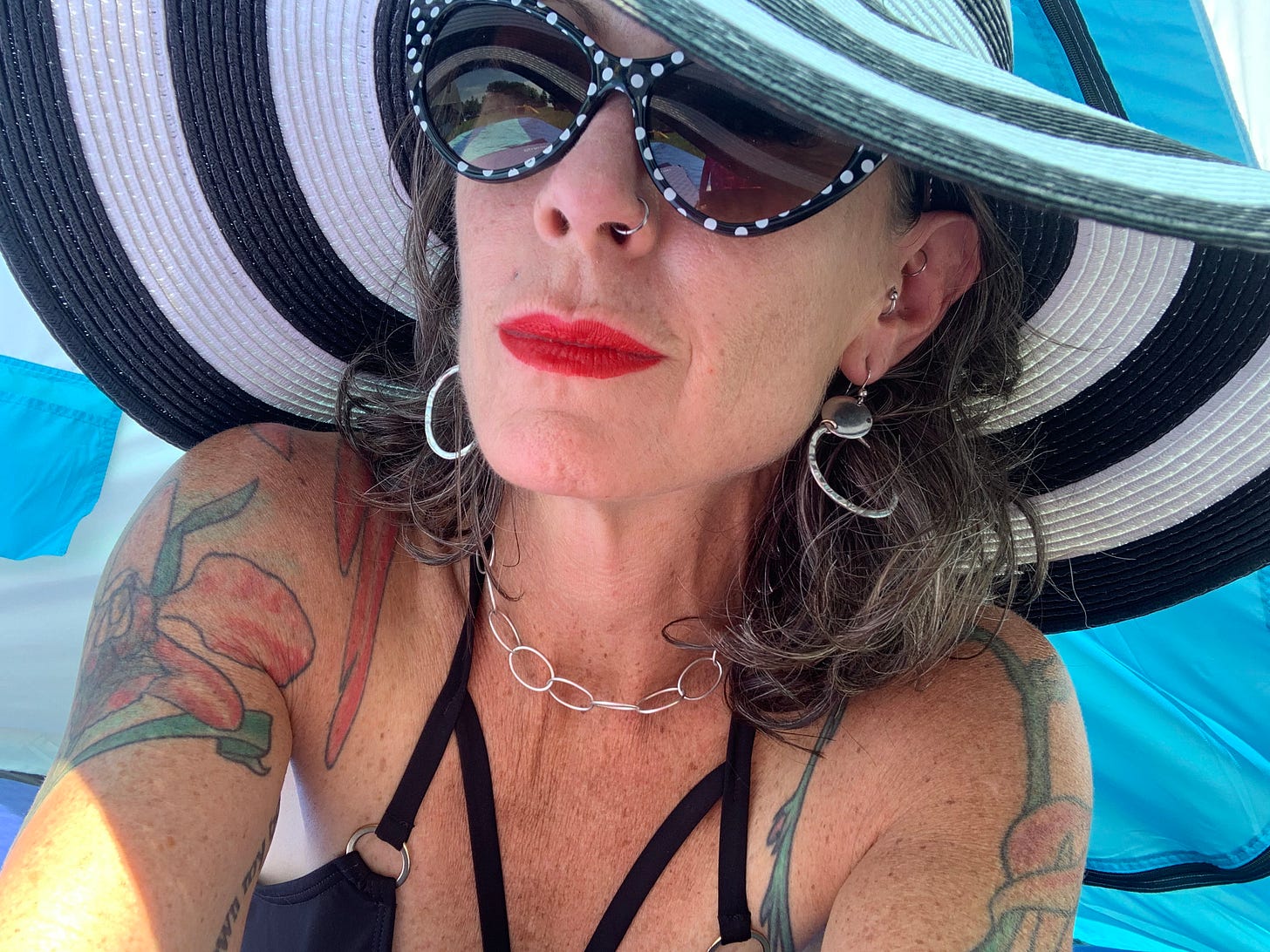

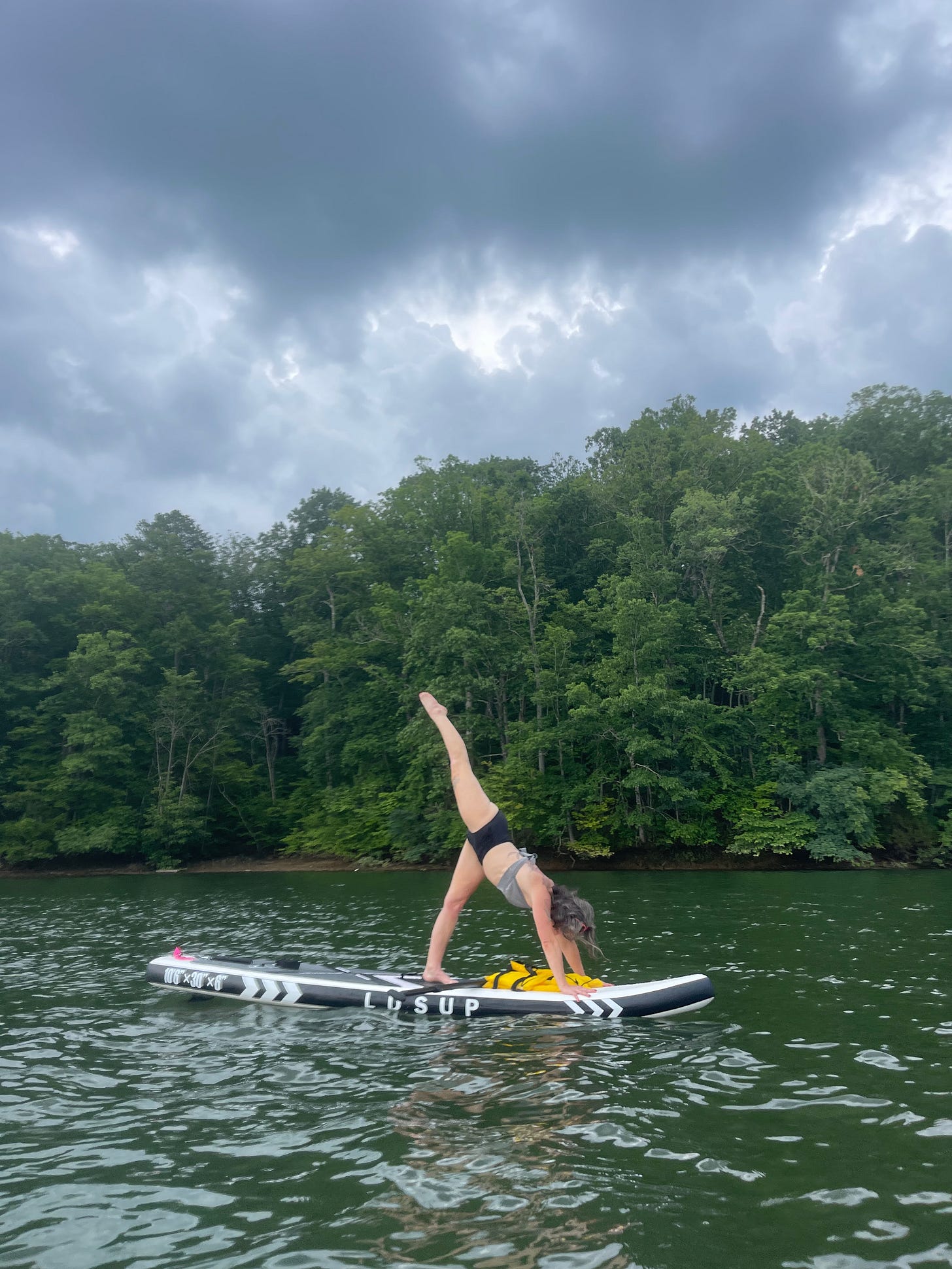

Love this: "That which feeds us is important, that which brings us comfort and keeps us warm. Those who feed us, those who bring comfort, those who help us build and tend our fires, whose care keeps us warm." And how we give meaning, assign value -- beautiful pottery -- I can hold it, admire it, love the art -- but it comes alive when it's a memory, a gift, something that has narrative in it.
And why are chairs all made for people over 5 foot -- what's that about? :)
Hi Marya,
I'm a new subscriber. Found you from the NonfictioNOW Conference last week--you and I briefly interacted in the auditorium of the last talk of the last day. You gave me your card, and here I am, reading your exquisite words.
Consider me a blank slate. I don't know anything about you, or your origins, or how you got here. I remember you telling me not to read your first books, and I get it. I get it, only in the sense that I once wrote books I feel a bit cringey about today, but they are artifacts of who I was then, imprints of who I was becoming.
Anyway, this is what struck me most about your post today: "and it startled me - it always does - what gives each of us a sense of purpose, of value, what signals to us that something has meaning, how vast a divide there really is between what matters to any one of us and anyone else..."
What gives us meaning...yes. That's the essence of storytelling, isn't it? Not just the situation, what happened, but the story, the meaning. I love how you said at the conference last week that stories about real people--ordinary humans--are what we need now, and I've thought about it a lot since then. A week has transpired, and I'm still thinking about what you said.
And I've come to conclude that being a writer at this point in history is vital. If we lose our stories, we lose ourselves. We lose our familial histories, our cultural connections, our identities. So that's why, like you, I'm committed to sharing stories, and often the most profound ones happen in happenstance encounters for me. Yesterday it was at the Tuckaleechee Caverns in Townsend, TN, while on a vacation to visit one of my friends who lives here.
All this to say, I am deeply grateful to have encountered you, to have listened to you speak, and to find you here on Substack. Glad to be sharing this digital space with you, Marya!